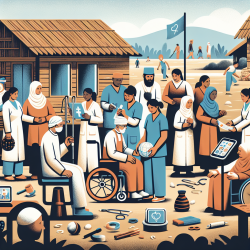Understanding Structural Racism and Health Inequities
The article emphasizes that structural racism is an “upstream” institutionalized process that perpetuates health inequities despite efforts to eliminate it. This understanding is crucial for practitioners in online therapy, as it highlights the importance of recognizing and addressing systemic barriers that affect children's health and well-being.
Key Findings from the Research
The research identifies several critical points:
- Structural racism contributes to higher rates of HIV/AIDS and related diseases among oppressed populations.
- Racial and ethnic disparities in health outcomes are evident among PWUD and other at-risk groups.
- Historical and ongoing processes of racial oppression, class, and gender intersections create health inequities.
- Institutionalized racism reinforces these disparities, making it difficult to dismantle.
Implementing Research Outcomes in Online Therapy
Practitioners can enhance their skills by integrating the research findings into their practice:
- Awareness and Education: Educate yourself and your team about structural racism and its impact on health outcomes. This knowledge can inform your approach to therapy and help you address systemic barriers affecting children.
- Inclusive Practices: Implement inclusive practices that consider the diverse backgrounds and experiences of children. This includes being mindful of cultural, racial, and socio-economic factors that may influence their therapy experience.
- Advocacy: Advocate for policies and practices that address structural racism and promote health equity. This can involve collaborating with schools, communities, and policymakers to create supportive environments for children.
- Data-Driven Decisions: Use data to identify disparities in therapy outcomes and develop targeted interventions. Regularly assess and adjust your practices to ensure they are equitable and effective.
Encouraging Further Research
While the research provides valuable insights, further investigation is necessary to fully understand and address structural racism in health outcomes. Practitioners can contribute to this effort by:
- Participating in Research: Engage in or support research studies that explore the impact of structural racism on therapy outcomes. Share your findings with the broader community to inform best practices.
- Continuous Learning: Stay updated on the latest research and developments in the field. This ongoing education will help you refine your skills and provide the best possible care for children.
By implementing these strategies, practitioners can play a crucial role in addressing structural racism and improving health outcomes for children in online therapy.
To read the original research paper, please follow this link: Toward a Theory of the Underpinnings and Vulnerabilities of Structural Racism: Looking Upstream from Disease Inequities among People Who Use Drugs.










